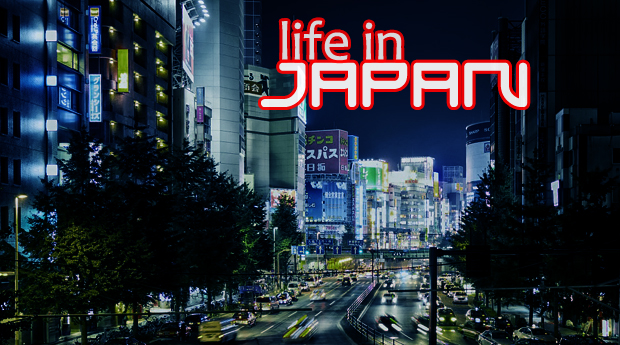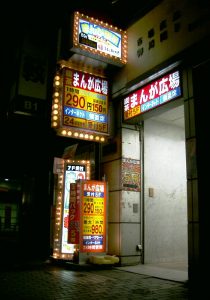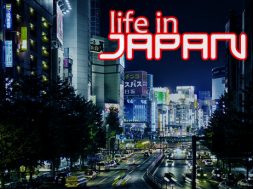

It feels childish to say that Tokyo is a different place by night. Cities, by their very nature, are constantly in flux; changing and bending to the whims and will of the people within them, and the change that befalls every city in the world as daylight dies is universally understood. That said, there’s something about Tokyo that really sets it apart. By day, it’s a slick, pristine urban metropolis. By night, it’s an electronic ephemeral utopia.
And like any utopia, it’s actually a bit grimy up close. While Tokyo’s nightlife is daunting in its sheer diversity, there’s a lot more to it than just night clubs and cocktail bars. The Japanese have a very strange relationship with work, in that they all hate it but rarely make any efforts to leave, and an even stranger relationship with trains, the location they choose to release their passive aggression in sullen, silent bursts, and when you consider that the trains are one of the few things that do shut down at night, whether you’re stumbling out of a night club in the wee-hours or finally escaping the walls of your office, it’s entirely possible that you’ll have missed your last train.
Tokyoites are used to this and many long-term foreign residents consider the infamous orunatio (All Night) to be a right-of-passage for newcomers. Coming from Dublin, where missing the nightlink is frequently a matter of actual life and death, this idea of an all night city was something I had to see to believe, and after arguing outside a night club in Shibuya on Halloween Night with a Japanese girl, Thor, the Toy Story alien and a Canadian dude in a dress about whether or not we should go to karaoke or get ramen at 4.45 in the morning, a believer I certainly was.
But if you’re new to Tokyo, or simply visiting, missing your last train can be a terrifying prospect. Fear not, not only is Tokyo one of the safest cities, if not the safest city in the world, but there are safeguards built into the very fabric of their society for just such an occurrence. Because it occurs a lot. Like, a lot, and the Japanese answer to train workers not wanting to work all night is to make everyone else do it instead.
So what are your options? Well, in the built up nightlife areas – Roppongi, Shinjuku, Shibuya etc. – your cup truly runneth over and depending on your budget you actually could end up having a great time, or just a great sleep. But even in the smaller parts of the greater Tokyo/Kanto area, you won’t be stuck for a roof over your head.
LOVE HOTELS
Maybe you know about love hotels. Maybe you don’t. Briefly, they’re hotels that cater to couples looking to get amorous and can be rented by the night, for when you want to sleep, or in two to four hour blocks, for when you don’t. They’re also usually slick to bits, decked out with huge televisions, luxury bath tubs and the most comfortable beds Japan has to offer. Although they vary wildly in price, between 3000 – 8000yen for ‘rest’ time and 5000-15000yen for a ‘stay’, they’re usually all clumped together which makes finding one to suit your budget (and/or hobbies) pretty straightforward. Whether you need a place to sleep or just somewhere to kill a few hours before your first train, Love Hotels are a good bet, with or without a partner in crime.
MANGA CAFES
I didn’t know about manga cafe’s before coming here, and chances are you won’t have heard about them either. This is strange because, like hot drinks in vending machines in winter, the Manga Cafe is an idea Japan should definitely have exported by now. Basically, a Manga Cafe is a web cafe divided up into private cubicles rather than desks. You can usually choose from cubicles with desk chairs, sofas or flatbeds, and each one comes with a desktop computer and high-speed internet. Once you lock your door, the space is yours. Surf, sleep, snack, whatever you want. For additional fees, you can also help yourself to all-you-can-drink coffee and all-you-can-read manga. Some even have showers for you to freshen up if you happen to be going to work the next morning. Which I was the first time I used one. Depending on your choices, a few hours in a Manga Cafe will cost between 700 and 2000 yen. And they are absolutely everywhere.
STAY OUT
Curiously, it can be quite difficult to get lunch in Tokyo. Most of the best restaurants don’t open until 5pm, and although that might seem crazy to western sensibilities, it’s a little more understandable when you realize that most of them stay open until 5 or 6 in the morning. In the main areas you’ll even find 24 hour coffee shops if you need a pick-me-up, and Japanese people are way too polite to ever kick you out, so go nuts; fall asleep if you want, no one will care.
In Tokyo, the trains might sleep, but the city doesn’t. Nothing stops and even if you have to, there’s no shortage of options for you to avail of. If you miss yours, don’t sweat it; chances are you’re going to have a good time, and at the very least, you’ll see a side to Tokyo that some people never do.
Especially at the love hotels.










